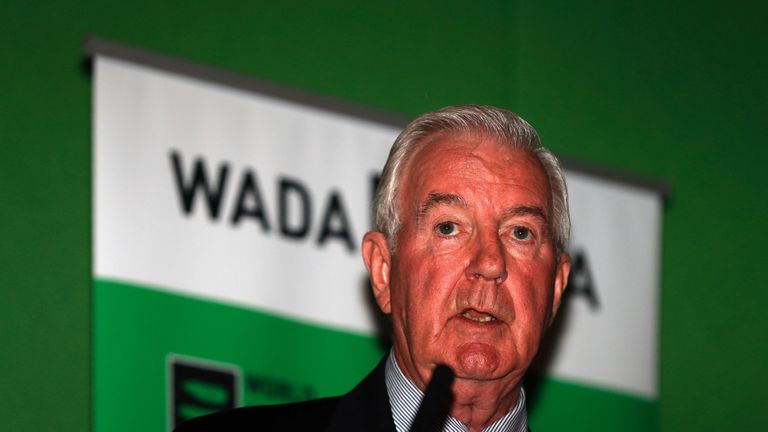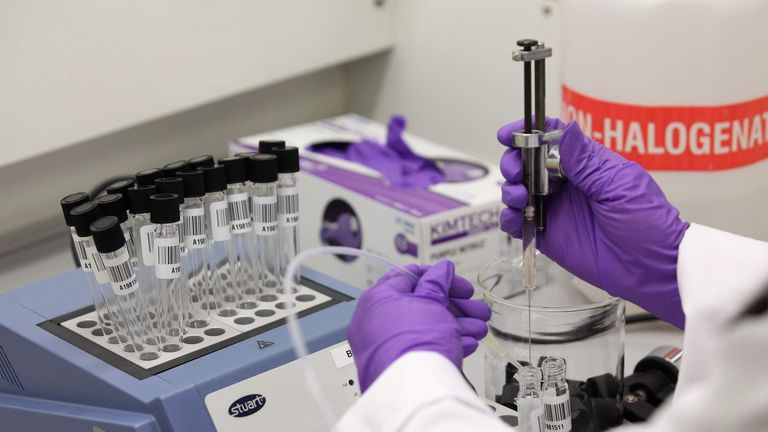WADA chief says drug-test process did not undermine Rio Olympics
Friday 28 October 2016 17:34, UK
World Anti-doping Agency president Craig Reedie claims the integrity of the Rio Olympics was not undermined despite some "regrettable" flaws in the athlete testing process.
A 55-page report from WADA's independent observers painted a damning picture of anti-doping procedures at the Games, citing lack of co-ordination, insufficient resources and a significant shortfall on planned tests.
The report said that on some days up to half of all planned tests due to be carried out in the Athletes' Village had to be aborted because the athletes could not be found and the total number of completed tests was almost 500 fewer than hoped.
While Reedie accepts there were serious problems on the ground, he does not believe the effort was fundamentally undermined.
"The IOC, who are responsible for the whole anti-doping effort at Olympic Games, made substantial efforts and they got through it," he said. "There were major issues, however - logical issues - particularly on sample collections, and that's disappointing.
"What was the real problem was the business of sample collecting - tracing athletes to find out where they were. There were a number of major issues in Brazil. One was a lack of money. Secondly there was a lack of manpower and some of that worked its way through to the sample-collection process.
"That is regrettable. You simply had to make the process work as best you could. But, at the end of the day, our independent reports said that while it was disappointing, in general the integrity of the process was not undermined.
"The report does concede there were some outstanding efforts and a phrase I think they used was 'enormous resourcefulness and goodwill' of some key doping personnel who actually made the system work. They got around 90 per cent of the projected numbers of sample collections."
Reedie explained that one of the key issues related to athlete chaperones, who the report claims were provided with inadequate training and information.
"Athletes are called for sample collection by chaperones and unfortunately quite a large number of the planned chaperones either weren't trained properly or some didn't even turn up," he said.
"So it was a manpower problem and then the details of how you find people in the village. You would go back later in the day and see if you could find them. You would keep doing it unless you didn't have the manpower to find them."
Meanwhile, IAAF president Sebastian Coe admits the reports alleging serious drug-test failings at Rio made for "uncomfortable reading".
"The only thing I would say is I welcome reports like that, sometimes they are uncomfortable reading, but I would rather have those sorts of observations," said Coe, who is proposing to introduce an "independent Athletics Integrity Unit", which will be responsible for doping matters, taking powers away from national associations.
"The testing itself is independent," he said. "I think where we have fallen foul is around results management. That all too often has had national interest involved.
"We cannot survive as a sport unless clean athletes absolutely feel that they have the full force of a federation behind their legitimate attempts to be the best they can possibly be. That's non-negotiable."





